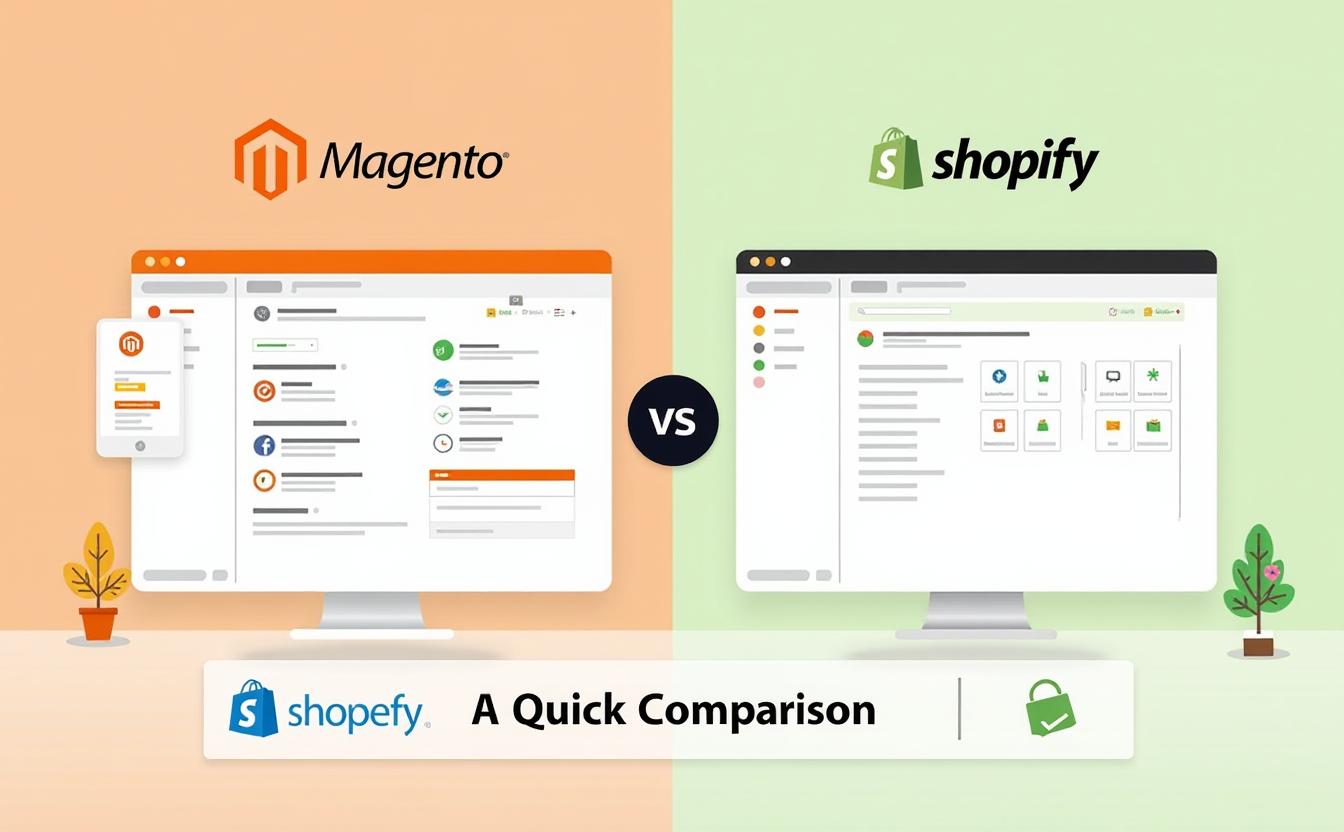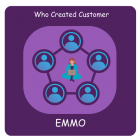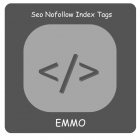Shopify vs Magento

Shopify vs Magento: An In-Depth Comparison
Table of Contents
Shopify vs Magento Overview
When it comes to e-commerce platforms, Shopify and Magento are two of the most popular choices for businesses worldwide. Shopify powers approximately 24% of the top million e-commerce stores, while Magento accounts for around 8%. Historically, Magento was the go-to solution, but Shopify has gained traction due to its user-friendly features and scalability.
Pricing
Shopify: This platform operates on a subscription-based model, offering various plans that cater to businesses of all sizes, including Shopify Plus for enterprises. Keep in mind that transaction fees apply if you choose not to use Shopify Payments.
Magento: The open-source version of Magento is free, but users should anticipate costs related to hosting, development, and maintenance. Magento Commerce, designed for larger businesses, features custom pricing based on specific needs.
Security
Shopify: With built-in security features like SSL certificates and PCI compliance, Shopify ensures secure transactions, providing peace of mind for both merchants and customers.
Magento: Security relies heavily on user implementation. While Magento offers essential security features, maintaining updates and applying patches is crucial for safeguarding your site.
Usability
Shopify: Known for its intuitive and straightforward interface, Shopify allows users with minimal technical skills to set up and manage their online stores easily. The drag-and-drop builder enhances the user experience.
Magento: While offering extensive customization options, Magento's complexity can be a barrier for less tech-savvy users. It requires a solid understanding of web development to utilize its full potential.
Features
Both platforms are designed to meet e-commerce needs, but Shopify stands out for its simplicity and ease of use. Magento offers more advanced features out of the box, such as product grouping and customizations. For those looking for a robust e-commerce solution, the Emmo Marketplace Theme for Magento 2 can elevate your store’s capabilities, providing a comprehensive solution tailored for diverse e-commerce needs.
Shipping
Shopify: Integrates seamlessly with various shipping carriers, offering real-time shipping rates that simplify logistics management for merchants.
Magento: Provides extensive shipping options but may require additional extensions or custom development for optimal carrier integration.
Plugins and Apps
Shopify: Features an expansive App Store with thousands of third-party applications, allowing businesses to easily customize their stores without needing to touch the code.
Magento: While Magento has a marketplace for extensions, integration can often require developer assistance, which may be more time-consuming.
Themes
Shopify: Offers a variety of professional themes that are easily customizable, enabling brands to create visually appealing storefronts quickly.
Magento: While Magento provides a broad selection of themes, customization usually necessitates coding skills, making it less user-friendly than Shopify. The Emmo Marketplace Theme offers a great option for those using Magento, designed to enhance usability and visual appeal.
Support
Shopify: Provides 24/7 customer support through multiple channels, including chat and email. Extensive documentation and community forums further assist users.
Magento: Primarily offers support through community forums and paid support plans. The learning curve can be steeper, making it potentially more challenging to find assistance.
How Magento and Shopify Stack Up
| Feature | Shopify | Adobe Commerce |
|---|---|---|
| Pricing | $29 to $299 per month (paid annually) High-volume plans also available |
Contact Adobe Commerce directly for pricing information |
| Templates and Design | Online web builder with stunning layouts for multiple industry types | Page builder app with integrated customer segmentation tooling and AI-driven product recommendations |
| Credit Card Processing Fee | 2.9% + 30 cents, or less with more expensive plans | Contact Adobe Commerce directly for information |
| Transaction Fee | N/A if using Shopify Payments. If using an external payment gateway, transaction fees are 2% for Basic, 0.5% for Advanced, and 0.15% for Plus. |
Contact Adobe Commerce directly for information |
| Mobile-Friendly | Yes | Yes |
| Integrations | More than 8,000 apps at the Shopify App Store | More than 3,600 native integrations available via Adobe Commerce Marketplace |
| Customer Support | 24/7 email and English live chat support on all Shopify plans. | Adobe Commerce offers 24/7 access to live representatives. Other support channels include email or help desk, chat, FAQs, forums, and a knowledge base. |
Frequently Asked Questions (FAQs) About Magento (Adobe Commerce)
What is the average monthly cost of Magento (Adobe Commerce)?
The average monthly cost of Magento (Adobe Commerce) typically starts around $2,000. The exact pricing depends on your store's volume and the specific services required, so it's best to assess your needs after setting your annual plan.
How does Magento differ from other e-commerce platforms like Shopify?
Magento offers extensive customization and scalability, making it ideal for larger enterprises with complex needs. In contrast, Shopify is known for its user-friendly interface, making it a great option for small to medium-sized businesses seeking simplicity.
What are the key benefits of using Magento for online stores?
Magento provides numerous advantages, including customizable design, robust SEO capabilities, and a wide range of third-party integrations. Its flexibility and scalability make it an excellent choice for businesses looking to expand their online presence.
Is it possible to integrate Shopify with Magento?
Yes, you can integrate Shopify with Magento. This allows you to utilize Magento for managing your online store while leveraging Shopify for sales. However, technical expertise may be needed due to potential integration challenges.
Why is Magento considered a premium e-commerce solution?
Magento is considered a premium solution due to its advanced features tailored for complex business operations. While it provides significant benefits, these come with higher development, hosting, and maintenance costs compared to other platforms.
What essential features should I look for in an e-commerce platform?
Key features to look for include robust inventory management, powerful marketing tools, customizable product pages, secure payment options, and comprehensive analytics. These functionalities help streamline operations and enhance customer experience.
How can Magento improve my online store’s SEO?
Magento includes built-in SEO features such as customizable URLs, meta descriptions, and sitemaps. These tools help optimize your store for search engines, driving more organic traffic and improving visibility.
Is Magento suitable for small businesses or startups?
While Magento is commonly used by larger businesses, it can also be suitable for small businesses that require flexibility and scalability. However, it's crucial to evaluate whether your business can manage the associated costs and complexities.
What industries can benefit from using Magento?
Magento is versatile and can be used across various industries, including retail, fashion, electronics, and B2B sectors. Its flexibility allows businesses in different fields to customize their online stores to meet specific market demands.
How does Magento support mobile commerce?
Magento offers responsive design capabilities, ensuring that your online store is optimized for mobile devices. This is essential for providing a seamless shopping experience for customers using smartphones and tablets.










